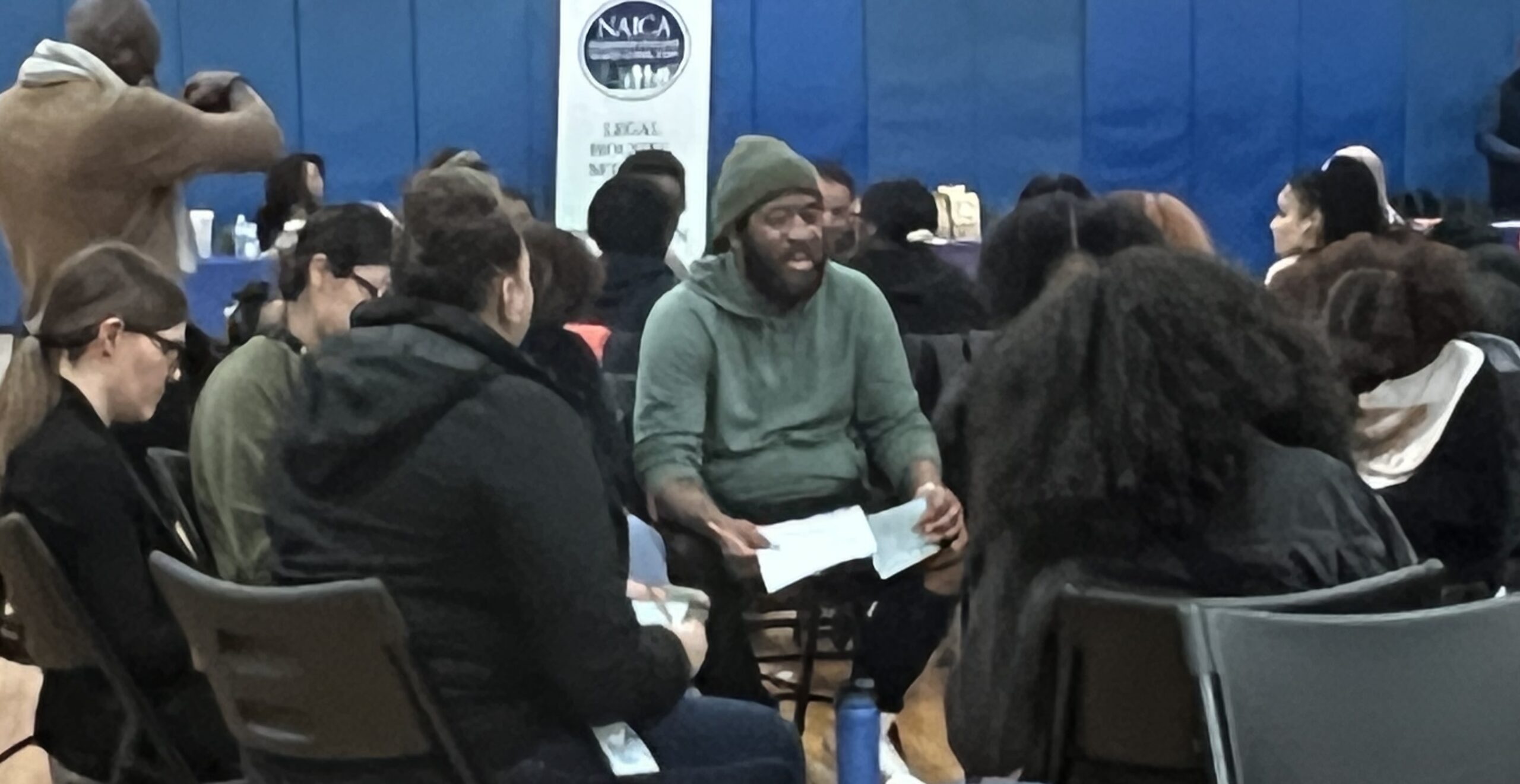“Whose Bronx?” “Our Bronx!” “Whose Bronx?” “Our Bronx!”
The chant repeated six times, with rising decibels each time, from the 160 residents seated in the BronxWorks gym last week for a housing rights organizing event sponsored by a youth-led affiliate of Bronx Defenders.
“We have rights, and together we can fight back” was the theme chosen for the session, which was orchestrated by the young members of BLOC – Bronx Leadership Organizing Center.
Attendees included community members, staff and board members of various housing organizations, volunteers of every age, representatives from political offices including the mayor’s office, representatives of Bronx museums and NYCHA tenant leaders.
Makeda Byfield, 19, a Bronx-born member of BLOC, was a key organizer, pushing to have the event focus on housing. Safe and secure housing is required before a person can take other positive social and economic steps, she said.
Before the pandemic, the Bronx routinely recorded almost twice as many evictions per household as in other boroughs. That number diminished during the pandemic, thanks to eviction moratoriums and emergency rental assistance. But now those programs have largely run their course, and landlords are again filing eviction notices and raising rents.
Speakers at the meeting reminded that in 2017, New York City stepped in to mitigate the housing crisis with the Right to Counsel legislation ensuring free legal services, including representation, to tenants facing eviction in housing court. But they said the state has not allocated sufficient resources to cover costs of the mandate.
The Bronx Defenders is partially funded by the Robin Hood Foundation – one of seven programs selected across the nation to share $25 million to spur development of new solutions to lifting families out of poverty in a sustainable way.
Carmen Pineiro, director of organizing and community engagement at Bronx Defenders, said that people affected by the criminal justice system are the best to engage in advocacy. “Every person should speak for themselves,” she said, and that “those who have made it” should not move away. Born in the Bronx and a summa cum laude graduate of John Jay College, Pineiro has been organizing for 17 years – and still lives in the Bronx.
Beyond listening to several speakers, participants were encouraged to visit any of seven tables under the basketball hoops staffed by representatives from organizations dedicated to housing rights: Bronx Works, Community Action for Safe Apartments (CASA), New York City Youth and Community Development, New York City Human Rights Commission, Northwest Bronx Community and Clergy Coalition, Neighborhood Association for Intercultural Affairs, and Bronx Defenders.
As they distributed written material and individual advice to any interested participants, participants milled around greeting each other. It “feels like a family gathering” not a political conference, said one woman in passing. There were more hugs than handshakes.
Byfield spoke passionately about “how society views homelessness as a consequence of an individual’s action, when it really is caused by social policy, social injustice, and social inequities.”
Having spent time living in shelters, the teenager recalled the “weight on her shoulders, the feeling of shame” and said it was an inter-generational problem that would impact the next generation. Calling on attendees to “do what we can on a micro and macro level,” she mentioned she was in her first semester at Fordham University studying social work.
Members of participating groups were introduced to hoots and hollers, then attendees broke into groups instructed to discuss a specific housing problem and envision solutions. Sample topics: legal rights for those unhoused; people facing eviction; tenant/landlord disputes about services and leases; Title 8 housing issues; NYCHA problems. Recommendations were printed on green index cards which the youth organizers collected for future action
Wrapping up the two-hour session, Jeanelle Henriquez, a “youth Ambassador” at Bridge Builders and student at John Jay, read a poem she had written about her own experience entitled “Housing Hardships in the Bronx!”
The opening lines: “My home, a part of me, that I would never let go,
But I think it is time to. My family is struggling.”
Her closing line:
“Oh, but what you did not know was that my family unites through these hardships.”

